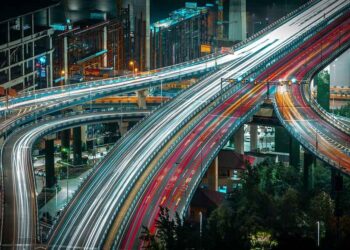IRU urges industry-friendly clean transition at EU Strategic Dialogue
IRU, representing the voice of the road transport industry, has called for a practical and balanced approach to the clean mobility transition during the Strategic Dialogue on the Future of the European Automotive Industry. The high-level discussions, led by European Commissioner Wopke Hoekstra, focused on advancing the EU’s automotive industry while aligning with decarbonization goals.
IRU emphasized the critical need for voluntary adoption of zero-emission vehicles (ZEV) supported by smart incentives, infrastructure investment, and a diversified energy mix. The organization warned that imposing ZEV purchasing mandates on private operators could disrupt supply chains, raise costs, and slow down fleet renewal.
A Balanced Approach to ZEV Adoption
“It is clear that Member States can, and should, lead by example, ensuring that public procurement policies align with CO₂ reduction targets while also supporting market-driven adoption of clean technologies,” said IRU EU Director Raluca Marian.
She added, “Public investment can play a pivotal role in de-risking private sector commitments, driving economies of scale, lowering battery-electric vehicle costs, and creating the market confidence needed to boost adoption.”
“However, a clear distinction must be maintained between public procurement and private investments. Imposing purchasing targets on private operators without the necessary enabling conditions in place would be disproportionate and unjustified in a functioning market.”
Addressing Key Challenges
IRU highlighted several critical challenges that need to be addressed for an effective green transition:
- Infrastructure Development: A significant increase in high-power charging stations and alternative fuel refuelling points is required. The lack of infrastructure remains a major obstacle to ZEV adoption, especially for fleet operators.
- Financial Viability: Zero-emission trucks are two to three times more expensive than conventional vehicles, making it difficult for small and medium-sized enterprises (SMEs) to upgrade their fleets. IRU called for harmonized financial incentives across the EU, such as tax benefits, investment aid, and infrastructure access.
- Diversified Energy Mix: While battery-electric vehicles may work for urban and regional transport, heavy-duty operations require additional solutions such as biofuels, biomethane, e-fuels, and hydrogen. IRU advocated for a technology-neutral approach to ensure all transport modes contribute effectively to decarbonization goals.
Public and Private Sector Collaboration
IRU stressed the importance of aligning public procurement policies with CO₂ reduction targets to set an example for the private sector. At the same time, public investment must play a role in de-risking private commitments and creating economies of scale that can make ZEV adoption more affordable.
Leading the Way to Net-Zero Emissions in Transport
Through the IRU Green Compact, the transport industry has already laid out a roadmap to achieve carbon neutrality. However, achieving these goals will require a supportive regulatory framework, substantial financial backing, and robust infrastructure readiness.
IRU remains committed to collaborating with EU policymakers, industry leaders, and transport operators to ensure a realistic and investment-friendly pathway toward net-zero emissions.
A technology-neutral strategy combined with regulatory certainty and investment support will pave the way for a sustainable, competitive, and decarbonized European road transport sector.


































